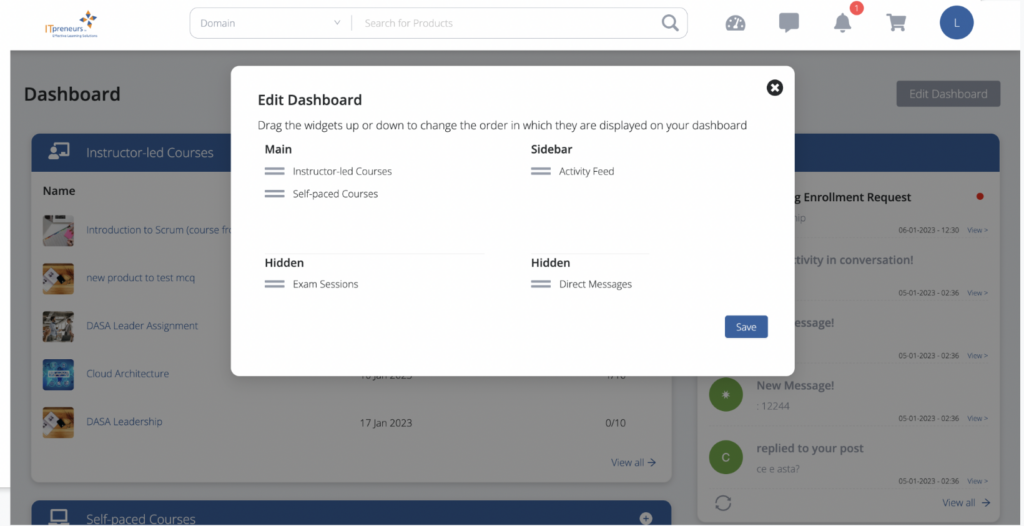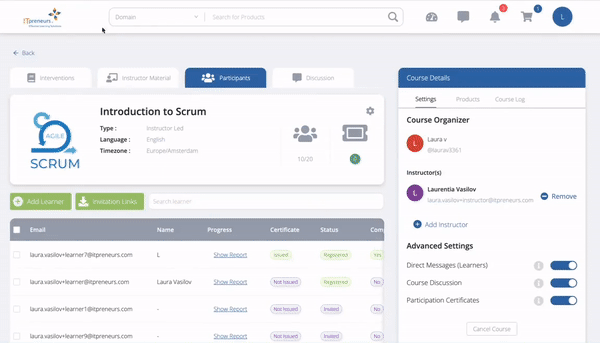Recently, I wrote 7 tips for trainers to deliver an ITIL Practitioner course. But, of course, there’s more you can do to deliver a successful, practical course. In particular, three skills I recommend you perfect: profiling skills, questioning skills, and observation skills.
1. Profiling Skills
You’ve probably seen one of the Crime Scene Investigation (CSI) shows. They first aired in 2000 and with the many different versions (CSI Miami, CSI NY, etc.) I’m sure you have seen at least one. What happens a lot in these shows is ‘profiling’. Profiling, using your observation skills, can be very useful during course deliveries. When profiling, you’ll usually find four different kinds of participants in your class:
Profiling Your Course Participants
- Sit and Listen
This type of participant prefers to sit and listen to the instructor. He/she will be attentive and focused on the training. - Work It
Folks in this group love to do exercises and jump right in. This is the type of person who immediately starts using a new camera instead of reading the manual first. - Book Worm
Participants who fit this profile prefer to read the book first, before doing anything. Using the camera example here, a person in this group will familiarize him/herself with the manual before using the camera. - Visualize it
People in this group prefer visual content, as much as possible, to engage them.
Knowing who you have in your class is step 1. Step 2 is adjusting your teaching styles. By the way, if you’re delivering a virtual course, it’s a lot harder to profile. Have a look at these 6 tips for a more productive virtual course delivery.
Adjusting Your Teaching Style
You need to be able to apply different teaching styles to meet the unique learning needs of each profile. You can use: lecturing, discussions, exercises, creating a process flow together. When you deliver a 3-day course and only use 1 teaching style, your training is only effective for 25% of your participants.
2. Questioning Skills
As a facilitator, you need to have good questioning skills. Your role is to guide your delegates to the right answers and information, without spoon-feeding them.
When they have a question coach them with your own questions, in a way that they are able to answer their own question.
Using Open-Ended versus Closed Questions
Open-ended questions are a strong way to lead your participants and explore their knowledge for more information. Use them to make the participant think. Open-ended questions often start with a “W”:
- What
- Where
- When
- Why
- Who
Using such questions you stimulate the thinking process of the other person. As a facilitator, you can check if they understand the topic by listening carefully to the answer(s).
Confirming the Answer with a Closed Question
Of course, as a facilitator, you have to listen very carefully. To check if you understood the answer from the participant properly, summarize it. Use a closed question to do so. Closed questions are the questions you can answer with yes, no or a limited number of options.
When the answer on your closed question was a yes, you can continue with asking another open-ended question, like a question to the void.
Questioning To The Void
This technique is taught in the Kepner-Tregoe courses. With a question to the void, you can dive deeper into the details by using a part of the previous answer in your next question, like: You mentioned various stakeholders, why do you think these stakeholders are important? You keep re-asking a question until you get to ‘the void’.
Another type of questioning to the void is the so-called “What else” question. With the “what else” question, you can broaden the type of information you collect. For example: “What else do you think is important to take into consideration?”
By using both types of questions you let the delegates think deeper and more broadly about the topics while encouraging their analytical abilities.
3. Observation and Coaching Skills
Good questioning skills are important for a facilitator, but you also need to have observation and coaching skills.
Observation Skills
Observe how the various groups perform. For example, when groups prepare for an assignment, take note of how they’re working together and how they are organized. Is the group managing the assignment properly? Did they organize the different tasks for the preparation of the assignment? Is somebody monitoring the time? Is someone creating content for the presentation? s everyone actively involved in the assignment? You can observe various details, create a small checklist and use it when observing the groups.
Also when the groups present their results, observe their behavior, but also observe the behavior of the audience.
Coaching Skills
What do I mean by coaching skills? I mean coaching the delegates in the right direction, without actually instructing or correcting them. Use tact, diplomacy, and humor to coach your delegates, in combination with the questioning methods mentioned above.
Role Play
In my earlier blog post, I mentioned that the facilitator role is very different from being a traditional trainer. You’ll need to switch between the two roles throughout the training for enhanced coaching. You may play the role of a CEO/CIO when participants work on an assignment, versus the trainer role you hold when going over the core course content. When the delegates ask a question you’ll need to take the role you are playing into account – feel free to ask the participant which answer they would want, a CEO/CIO’s answer or you as their trainer?
Communication
In the ITIL Practitioner course, communication is one of the core learning objectives. As a facilitator, make sure you are a top communicator yourself, this ties into your questioning and coaching abilities. I’d say you should ‘own’ your communication skills to boost your effectiveness as a trainer/facilitator, but as my colleague recently wrote in this blog post: if you want to own it, you have to know everything about it.
Happy Training!
—
View all my blogs.
About the author

As an IT Service Management trainer, consultant and line manager with over 25 years of experience in IT, Marcel has performed strategic and tactical assignments in a wide variety of areas. For the ITIL 4 update, Marcel has been part of the ITIL 4 Lead Architect Team and Review Team at AXELOS. Through his association with AXELOS, Marcel comprehends the background, the architecture, and the underlying reasons of the ITIL 4 update.
Related Courseware
Sorry, we couldn't find any posts. Please try a different search.



